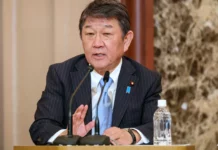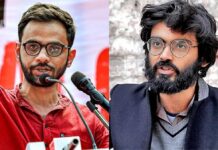 NEW DELHI: Australia today assured India that there will be no change in the decision by the previous government on supplying uranium to India.
NEW DELHI: Australia today assured India that there will be no change in the decision by the previous government on supplying uranium to India.
Australian High Commissioner Patrick Suckling said the next round of talks between the two countries to firm up a safeguard agreement for sale of uranium to India is likely to take place before end of the year.
The two rounds of talks, held earlier this year on the issue, had gone “very well and it was positive and constructive from both sides”, he said.
The High Commissioner was speaking about policies of Australia’s new conservative Prime Minister Tony Abbott, who unveiled his first cabinet today. Abbott won the September 7 election on the promises of stronger economic management.
“The intension of both the sides is to try and finish the safeguard agreement as fast as possible,” he said
Suckling said Abbott has already stated that Australia has significant relationship on security and strategic issues with India and he would like to continue with that relationship.
“We feel we have made good progress. But we have not put a time-frame for the negotiations to conclude because sometimes even the straight-looking issues become complex,” he told reporters.
In December 2011, Australia’s then ruling Labor Party led by Julia Gillard had cleared the way for export of Australian uranium to India after a strong debate on the floor of the party’s national conference. Australia’s known uranium resources are the world’s largest – 31 per cent of the globe’s total.
The High Commissioner said India should ensure that uranium would be used for peaceful purposes and not military purposes.
He said that Australia would like to further expand cooperation with India in areas like infrastructure, education, agri-business, bio-tech, pharma and information technology.
“In agri-business area, we would like share our expertise on productivity, yield and food processing, transportation of foodgrains, stocking,” he said.
Observing that he does not see significant change in the Australia-India relationship under the new government, Suckling said defense cooperation will be a priority area.
“I see interest in growing economic relationship between India and Australia….(We) want to develop defence-to-defence cooperation with India and also people-to-people links especially in education.”
Terming the joint naval exercise between both countries as important, he said Australia was preparing to organize it in 2015.
Asked about the any possibility of a joint exercise between the armies of two countries, he said presently there was plans for army-to-army cooperation but “we have identified some niche areas for cooperation”.
With Australia being one of the attractive destinations for Indian students, he said both the countries were working for their benefit.
According to an estimate, Indians are the second largest community of Asian students in Australia.
There was a sharp fall in number of Indian students going for education to Australia following a spate of attacks on them there. Last year, 54,000 students went for Australian university courses, which was an increase of 16 per cent over previous year.
The Australian government expects the number to go up this year after the federal and state governments have taken a number of steps to stop attacks on Indian students and nip the problem in the bud itself. -PTI





